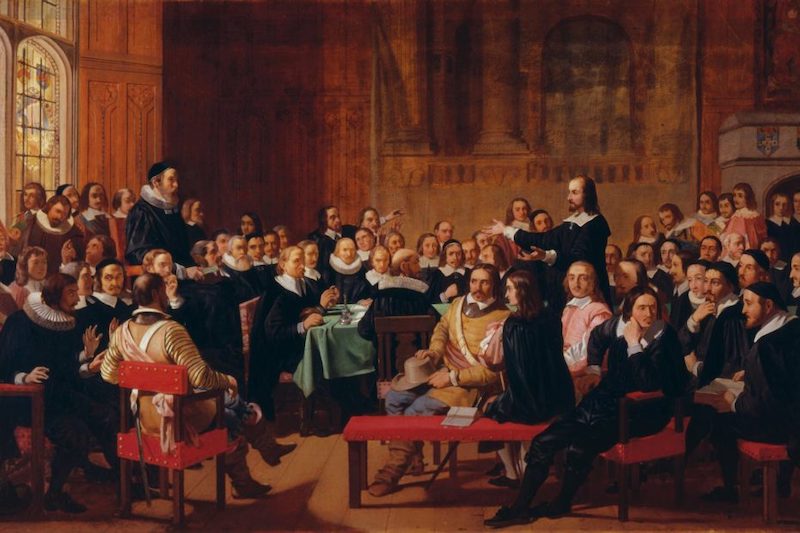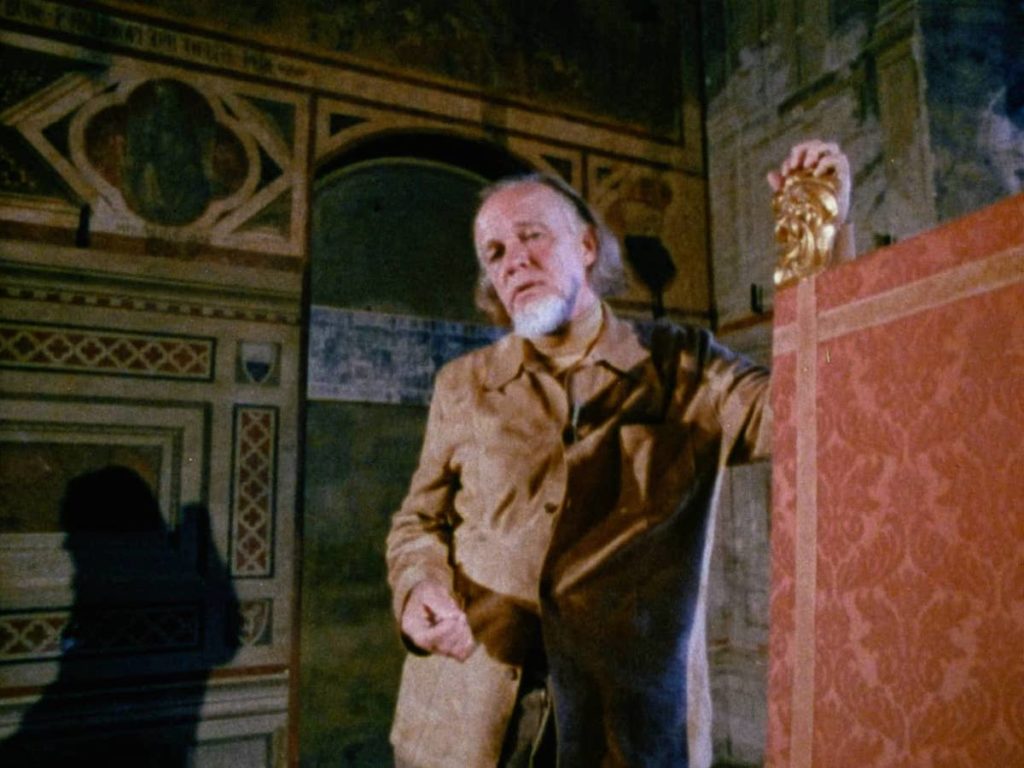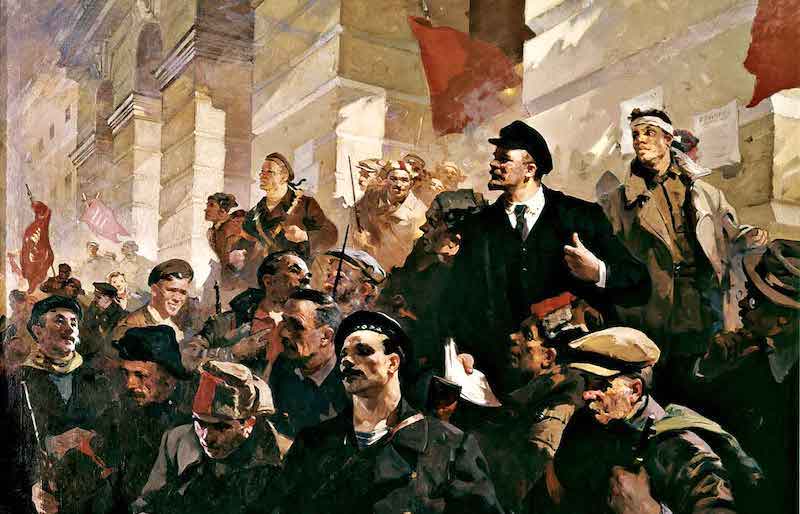
Share this post with another homeschool mom!
“See to it that no one takes you captive by philosophy…”
When the apostle Paul wrote his letter to the church at Colossae, he was a prisoner in Rome. By this point, he had faced every possible opponent. He could therefore survey the pagan Roman Empire and know all the various challenges confronting the young churches.
Although overt persecution by the Jews was paramount, Paul recognized there were growing intellectual forces that sought to undermine the Biblical-philosophical foundations of Christianity. He knew they were very dangerous.
Whereas outward physical oppression was trying, it often resulted in strengthening the faith of those being persecuted. This was not the case with false intellectual ideas. Instead, they acted like a slow poison in the soil of Christianity, eventually killing all growth. One need only look at the history of the West in Europe and the United States to see its results.
Why is this?
Unlike other religions, Christianity rests on a historical-philosophical foundation. Most Christians today don’t realize this; but just take a moment to consider the Apostles’ Creed: it makes very strong historical-philosophical statements about the nature of the God, Jesus Christ, the world, redemption, and much more.
If you can transform the ideas represented by those statements, or remove the philosophical ground on which they stand, then belief becomes difficult if not impossible.

It was this danger that was facing the new church at Colossae. Paul therefore opens his letter with a staunch defense of the intellectual foundations of Christianity, telling the Colossians to “see to it that no one takes you captive by philosophy and empty deceit, according to human tradition, according to the elemental spirits of the world, and not according to Christ.” (Col 2:8)
Although non-Christian philosophy has grown more sophisticated over the past 2000 years, the approach to fighting it has not changed. It is the same struggle today as it was in the first century—with the same dire consequences for those who choose to ignore it.
Here are six ways you can help keep your students from being taken captive by the deceitful philosophical ideas of our day —or any day.
1. Teach them the Bible
This is more than knowing Bible stories. Instead, students need to understand the entire Bible, having read it from cover to cover at least once. The Old Testament should be used to understand the New Testament, and vice versa. If this sounds like a lot of work, it is—but the good thing is that it can be done slowly and incrementally. I recommend two things:
First, every student needs to using a conservative Study Bible with notes, cross-references, maps, and introductions. The ESV Student Study Bible or the NASB Study Bible are good options. You should own an adult Study Bible yourself; they are excellent references. Students need the Bible to be put in historical and grammatical context; if not, it is easily disconnected from reality.

Second, you should be reading through the Bible as a family and talking about it at the dinner table, in the car, or whenever you’re together. When you’re reading through most books, there will be a lot to chat about. But the notes and charts will also help you get through more obscure books such as Leviticus, Deuteronomy, and the Prophets.
Read, read, read – there’s no other route to knowing the Word of God. Paul, in fact, starts his letter to the Colossians by reminding them to remember what they “have heard before in the word of the truth, the gospel, which has come to you, as indeed in the whole world it is bearing fruit and increasing…” (Col 1:5-6)
2. Teach them Theology
Knowing the Bible is the first step, but the Bible must be interpreted as a whole to see how everything fits together. This is the role of theology. It has always been essential to the church, starting with Paul’s letters and continuing through the first centuries, to the Medievals and Reformers, and up to the present day.
There are many ways to teach theology. Our theological forefathers wrote confessions and catechisms that explain theology in a systemic way. Some of the most famous are the Westminster Confession and Catechisms (Reformed), the Augsburg Confession (Lutheran), The Baptist Confession of 1689 (Baptist), among numerous others. These are older documents, but still very useful.

Newer books on theology include systematic theologies and books on doctrine. Obviously there are different Christian traditions, so you can ask your pastor or someone you trust if you’re not sure where to go.
Here are a few that I have found useful: Essential Truths of the Christian Faith by RC Sproul and Summary of Christian Doctrine by Louis Berkhof. You can read a section at a time and talk about it as a family. You’ll be surprised at how much teenagers are interested in these topics.
3. Teach them Worldview & Apologetics
Francis Schaeffer was one of the first Christians to popularize thinking about Christianity from a worldview perspective. He defines a worldview as the grid through which we see everything in the world, from culture to science to ethics to education.
This approach, however, has roots that go back to Paul. He reminds the Colossians that “all the treasures of wisdom and knowledge” are to be found in Christ and that “all things were created through Him and for Him.” In other words, the truth of the created order can only be understood in its relationship to God. Paul tells them this “in order that no one may delude you with plausible arguments.”
Apologetics is the process of familiarizing oneself with arguments for and against a Christian worldview so that one can provide a defense for the truth. Francis Schaeffer’s film series How Should We Then Live is a good place to start because it puts a Christian worldview into historical perspective, bringing it close enough to the present day to reveal the ongoing dangers of Marxism and Statism to Christianity.
But there are also some excellent books that can be read on this topic, depending on your student’s educational level. We have put together a list of 12 Books to Build a Christian Worldview.

4. Teach Them Philosophy
Once someone understands the general history of ideas, it is important to go deeper and examine the specific philosophers and philosophies that influenced the currents of history. This is why ideas are far more dangerous than guns: they form the structures of our daily lives, whether it is the State, Culture, Education, Work, or the Family.
When students come face-to-face with the most influential ideas in history, it is almost like pulling back the curtain on the Wizard of Oz—what seems menacing is actually man-made and mundane.
For instance, when one reads Nietszche and sees what he thinks about the world in terms of dominance and destruction, his nihilism is far less attractive. When one reads Marx and sees what he thinks about people in terms of conflict and struggle, his materialism becomes far more dangerous. Furthermore, one realizes their ideas have led to widespread destruction and death — and yet they are still being used to manipulate people today.
Yet philosophy is not always easy to understand. That’s why we have developed a philosophy class that combines the excellent video teaching of RC Sproul, Christian commentary by John Frame, and reading selections from the philosophers themselves.
Why is this so important?
John Frame explains: “My whole idea is to expose the fact that the history of philosophy and theology is nothing less than spiritual warfare in the life of the mind….I want to prepare students for the spiritual warfare as it exists in their own time, without neglecting the background of this battle in earlier times.” (Preface, A History of Western Philosophy & Theology)
This is an important class for understanding the ideas that we see in culture today, from relativism, to sexual liberation, to political extremism, to atheism. You can try some sample lessons here.

5. Teach them the Consequences of Worldview in History
There is a reason why the Greeks created the story of Pandora: once a dangerous idea emerges into the world, it is inevitable that it is going to do serious harm to people. At the same time, when a good idea is implemented, it is inevitable that it will bring great benefit to people.
The best way to see this is by a study of history from a worldview perspective. This is why we have developed an incredibly insightful history series with Dave Raymond. The brilliance of Dave’s teaching is that he combines moral principle and narrative story. In other words, he shows how different worldviews work themselves out in the lives of real men and women.
Most importantly, he shows how a Christian worldview is necessary for civilization to truly flourish. It is no coincidence that he starts with American History and reveals how Christian principles were the basis of liberty, freedom, and prosperity.
With Modernity, he goes deeper into the dangerous results of non-Christian ideas, such as the French Revolution, Darwinism, and Statism, all of which led to the greatest century of bloodshed and death: the 20th.

He then goes back in time to examine the two competing strands of Biblical religion and Pagan religion growing side by side in Antiquity. Finally, he finishes the series with Christendom, showing how the Church transformed the West and provided it the foundation to create modern civilization.
There are also many excellent books that show how worldviews work themselves out through history. One of the best is The One and the Many, an extraordinary examination of the consequences of ideas from the earliest days to the present.
6. Teach them to Walk in the Truth
In closing, our children are growing up in a generation that appears to be returning to paganism. This is the fight of our lives: pushing back on pagan ideas so that Christian truth can triumph. It is why Paul reminds the Colossians that Christ “disarmed the rulers and authorities and put them to open shame, by triumphing over them in Him.”
After preparing ourselves mentally, what should we do then? Paul tells the Colossians:
“Put on then, as God’s chosen ones, holy and beloved, compassionate hearts, kindness, humility, meekness, and patience, bearing with one another…And whatever you do, in word or deed, do everything in the name of the Lord Jesus, giving thanks to God the Father through him.”
In other words, thinking right thoughts about God and His world leads us to doing right actions toward God and others. It is not an easy calling in this day and age, but it is the only calling that will lead to fulfilled lives under the reign of Christ.
Share this post with another homeschool mom!









